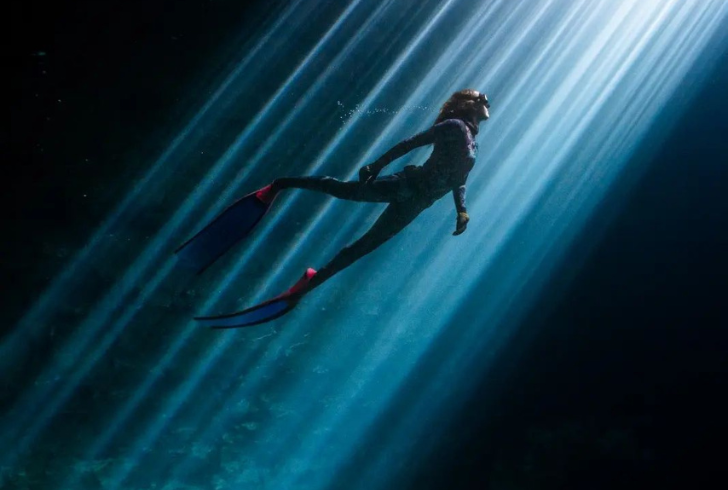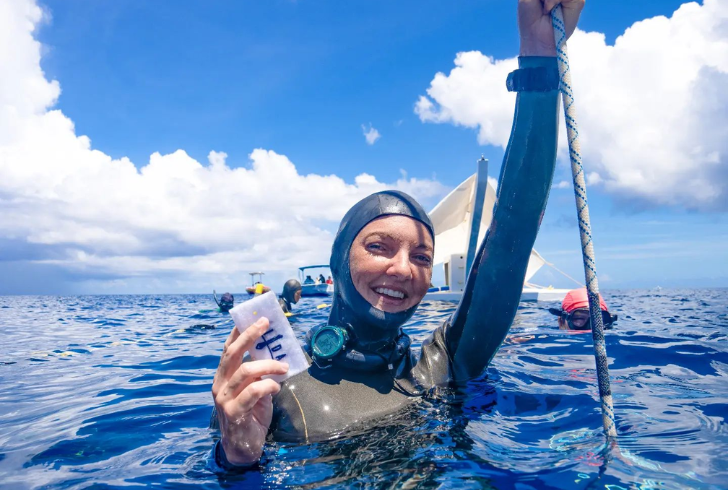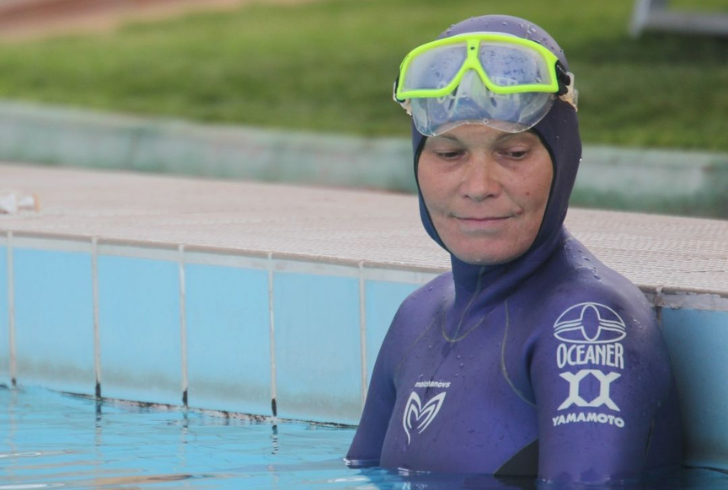The world of sports is brimming with adrenaline, but few activities match the heart-pounding thrill of freediving. Imagine holding your breath, diving deep into the ocean's embrace, and surfacing back with just a single breath.
This is not a scene from an action movie; it's the real-life pursuit of freedivers like Amber Bourke, who are pushing their limits to bring this extreme sport into the limelight.
Amber Bourke: From Synchronized Swimmer to Freediving Phenomenon
Amber Bourke, a 34-year-old Australian, is not just any athlete; she's a freediving prodigy. Her journey from the coral-rich Great Barrier Reef to the depths of the ocean is nothing short of remarkable. Bourke, who found her first love in synchronized swimming, discovered the world of freediving during a solo trip to Egypt.
This experience, diving over 60 feet on her second day, transformed her life. Now, she holds the title of Australia's deepest woman, reaching an astonishing 81 meters (266 feet) – nearly as tall as the Washington Monument!

Instagram | Amberofthesea | Bourke holds the title of Australia's deepest woman, reaching an astonishing 81 meters (266 feet).
The Fascination and Fear of Freediving
- Mesmerizing Yet Terrifying: Freediving is as mesmerizing as it is terrifying. The sight of divers gliding into the abyss, defying the very essence of human survival, is spellbinding. Yet, beneath this awe lies a world fraught with risks – blackouts and lung squeezes being the most common.
- Safety First: Despite the dangers, the sport is evolving with better safety measures. Competitions like Vertical Blue, where Bourke recently shined, are closely monitored by expert safety teams. But Bourke warns, freediving alone is akin to playing Russian roulette with life.
- High-Profile Incidents: The sport has witnessed its share of tragedies, from the loss of the world's best freediver, Natalia Molchanova, to the heroic sacrifice of safety diver Stephen Keenan. These incidents highlight the risks but also the tight-knit community's dedication to safety.
Viral Sensation and Olympic Dreams

Instagram | amberofthesea | Bourke's viral TikTok posts amassing millions of views.
Freediving is riding a wave of popularity, partly thanks to Bourke's viral TikTok posts, amassing millions of views. These posts have opened a window to the sport, intriguing and educating a global audience. But the ultimate dream? Gaining Olympic recognition. Bourke and her fellow athletes are not just chasing records; they're chasing a future where freediving is an Olympic sport.
Battling Stereotypes and Scandals
- Danger vs. Discipline: One of the biggest challenges for freediving is its reputation for danger. While it's true that the sport involves inherent risks, the disciplined approach by athletes and the evolving safety measures are making it safer every day.
- Doping Scandals: The purity of the sport has been recently tainted by doping incidents, casting a shadow over its integrity. World-renowned freedivers like William Trubridge are vocal against such practices, advocating for a clean and respected sport.
A Sport for the Brave

Instagram | molchanovsgreediving | Freediving is a sport that demands not just physical strength but immense mental fortitude.
Freediving is not for the faint-hearted. It's a sport that demands not just physical strength but immense mental fortitude. It's about conquering the depths of the ocean and the depths of one's fears. Every dive is a journey into the unknown, a dance with the vast, silent world beneath the waves.
It's where discipline meets the primal instinct for survival, where athletes not only challenge the limits of their bodies but also embrace a profound sense of tranquility found only in the deep blue serenity of the sea.
The Future of Freediving
The future looks bright for this breathtaking sport. With increased visibility through documentaries, social media, and potential Olympic recognition, freediving is poised to emerge from the depths of niche sports into the mainstream. It's a journey of breathless excitement, daring athleticism, and undying passion – a journey that Amber Bourke and many like her are proudly leading.
Freediving isn't just about records or fame; it's about the human spirit's relentless pursuit to push boundaries and explore uncharted territories. It's a testament to what we can achieve when we dare to dive deep – both into the ocean and into ourselves.





